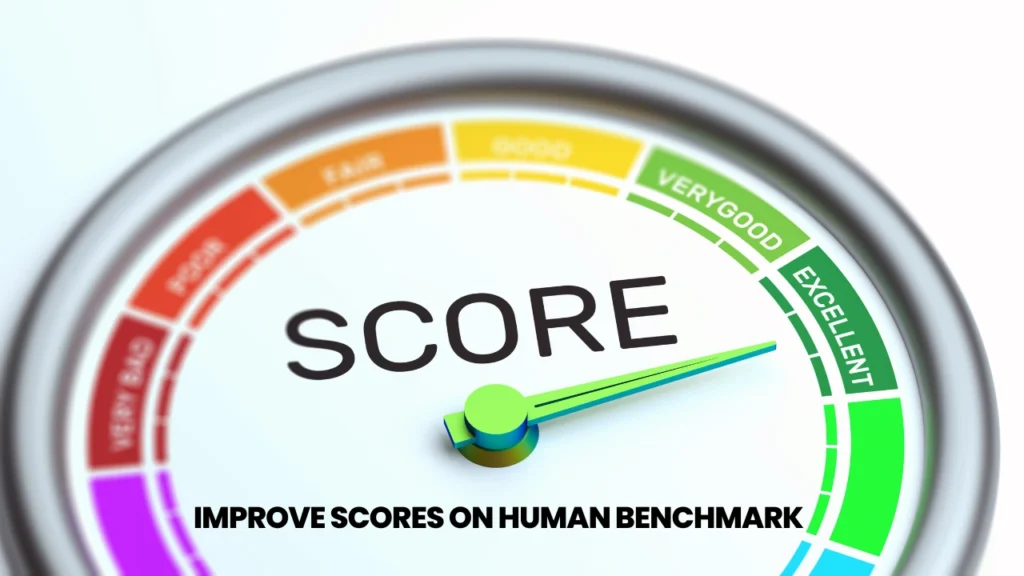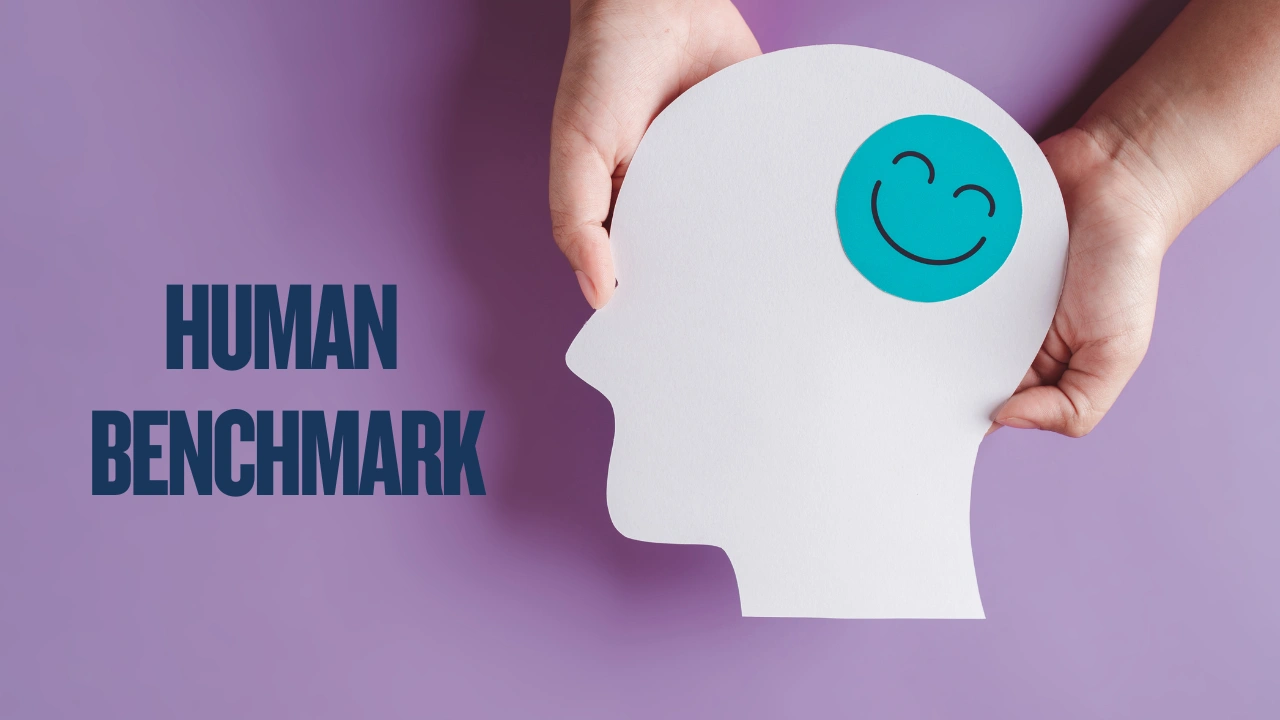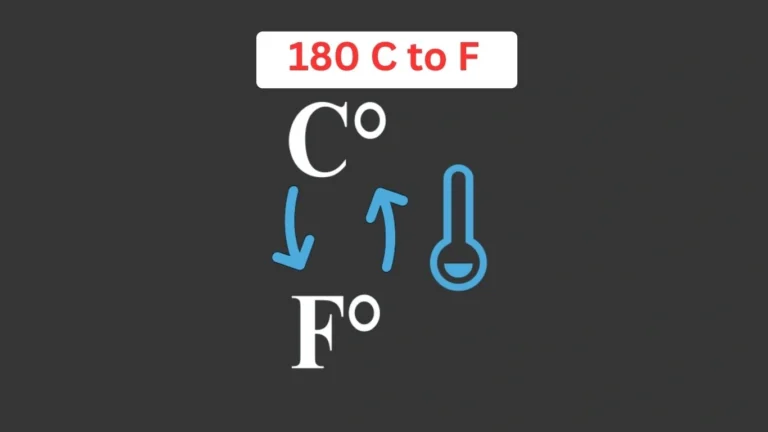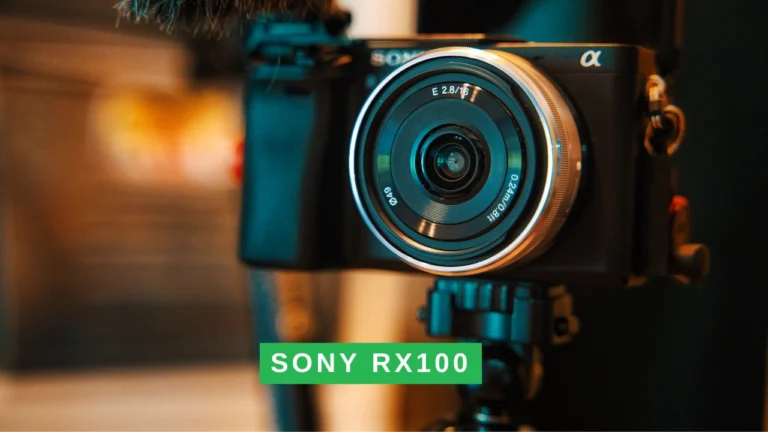Human Benchmark: Test & Improve Your Cognitive Skills Today
Have you ever wondered how quick your reactions are or how strong your memory is? The Human Benchmark test is an online tool designed to assess various cognitive skills, including reaction time, memory, and attention span. Whether you’re a gamer trying to improve reflexes or just curious about your brain’s performance, Human Benchmark provides valuable insights.
In this article, we’ll explore what the Human Benchmark test is, how it works, and how you can use it to improve cognitive functions. We’ll also discuss some secondary aspects like memory training, cognitive exercises, and the impact of brain games on mental sharpness.
What Is Human Benchmark?
Human Benchmark is a website that offers multiple cognitive tests to evaluate different aspects of human intelligence and reflexes. The platform allows users to track their performance, compare scores with global averages, and challenge themselves to improve over time.
The key areas tested by Human Benchmark include:
- Reaction Time – Measures how quickly you respond to visual stimuli.
- Memory Tests – Includes verbal and sequence memory assessments.
- Number Memory – Challenges you to remember and recall numerical sequences.
- Typing Speed – Tests how fast and accurately you can type.
- Aim Trainer – Helps improve target accuracy and reflex speed.
These tests are not just for entertainment. They provide insights into cognitive strengths and weaknesses, helping users enhance their mental agility through practice.
How Does Human Benchmark Work?
Each test on the Human Benchmark platform is designed to be simple yet effective. Let’s break down some of the most popular ones:
1. Reaction Time Test
This test measures how fast you can click when the screen changes color. The average human reaction time is around 250 milliseconds. Elite gamers and athletes often score below 200 milliseconds, showing superior reflexes.
Tip: To improve reaction time, practice regularly, get enough sleep, and stay hydrated.
2. Sequence Memory Test
You are shown a sequence of tiles lighting up, and you must recall the order correctly. The longer you play, the harder the sequences become.
Fact: Most people struggle to remember sequences beyond 10 steps without practice.
3. Number Memory Test
This test flashes a number on the screen for a few seconds, then disappears. You must type it correctly from memory.
Example Scores:
| Score (Digits) | Memory Strength Level |
|---|---|
| 5-7 digits | Average |
| 8-10 digits | Above Average |
| 11+ digits | Exceptional Memory |
4. Verbal Memory Test
You are presented with words and must remember which ones have appeared before. This test helps gauge short-term memory retention.
Did You Know? Studies suggest that memory can be trained with techniques like chunking and repetition.
5. Typing Test
Measures how fast you can type words per minute (WPM). This is useful for professionals who type frequently.
Why Is Human Benchmark Useful?
The Human Benchmark test isn’t just a game—it has real-world applications. Here’s why people use it:
1. Gamers and Esports Players
Fast reflexes are essential in competitive gaming. Gamers use Human Benchmark to sharpen reaction time and aiming skills.
2. Cognitive Training
Improving memory and reaction speed can boost productivity, decision-making, and mental clarity.
3. Education and Learning
Students and professionals can use these tests to improve focus and concentration.
4. Brain Health and Aging
Cognitive exercises may help maintain brain function and delay cognitive decline in older adults.
Why Some People Are Faster Than Others
Reaction time depends on how quickly the brain processes information and sends signals to the muscles. Factors like genetics, neural efficiency, and cognitive processing speed play a crucial role in determining how fast someone reacts. Studies show that athletes and gamers often have faster reflexes due to constant practice and heightened hand-eye coordination.
External factors like age, fatigue, and distractions can also impact reaction speed significantly. Younger individuals tend to react faster because their neuronal pathways are more efficient, while aging slows down signal transmission. However, training exercises, proper nutrition, and mental alertness can help improve reaction time regardless of age.
How to Improve Your Scores on Human Benchmark

If you’re looking to enhance your cognitive skills, here are some tips:
1. Practice Regularly
Like any skill, reaction time and memory improve with consistent training.
2. Get Proper Rest
Lack of sleep slows reaction time and affects memory. Aim for 7-9 hours of sleep per night.
3. Stay Hydrated and Eat Brain-Boosting Foods
Foods like nuts, berries, and fish are rich in omega-3 fatty acids, which support brain function.
4. Try Brain Training Apps
Apps like Lumosity and CogniFit offer exercises similar to Human Benchmark to enhance cognitive abilities.
5. Reduce Distractions
Training in a quiet environment helps you focus better, leading to improved scores.
Does Human Benchmark Have Scientific Accuracy?
The Human Benchmark tests provide a basic measure of cognitive ability, but they aren’t as precise as clinical tests. Reaction times, for instance, can be influenced by monitor refresh rate and internet latency. However, they still offer a useful baseline for tracking improvements.
Comparing Average Human Scores
| Test Type | Average Score |
|---|---|
| Reaction Time | 250ms |
| Sequence Memory | 8 steps |
| Number Memory | 7 digits |
| Typing Speed | 40 WPM |
The Link Between Human Benchmark Scores and Cognitive Function
Human Benchmark scores reflect key aspects of cognitive function, such as memory, reaction time, and attention span. Higher scores often indicate better neural processing speed and enhanced brain efficiency. Regular engagement with cognitive tasks can strengthen synaptic connections, improving overall mental agility.
Lower scores may suggest slower information processing or weaker memory retention, which can be influenced by age, stress, or lack of mental stimulation. However, brain training exercises, proper sleep, and a healthy diet can help improve cognitive function over time. Tracking progress on Human Benchmark can offer valuable insights into brain health and mental performance.
Conclusion
The Human Benchmark test is a fun and insightful way to measure your cognitive skills. Whether you’re testing reaction time, memory, or typing speed, this tool can help you track progress and set personal improvement goals.
By practicing regularly, maintaining a healthy lifestyle, and using memory-enhancing techniques, you can boost your performance on these tests. So, why not challenge yourself today and see how you measure up?







